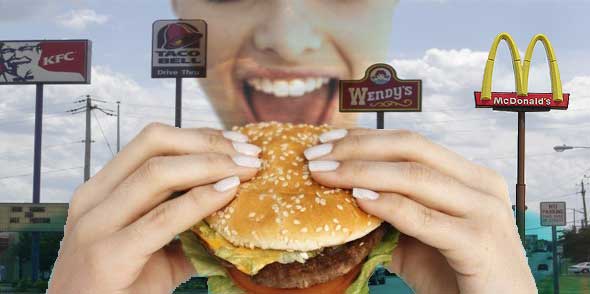R-CALF celebrates Trump tariffs but fast food giants may not be so happy

As expected, long-time anti-Canadian cattle/beef trade extremist lobby group R-CALF USA was applauding President Trump’s on-again/off-again 25% tariffs on Canadian cattle and beef imports
Gloating by R-CALF is no surprise; tariffs on beef imports was the reason R-CALF was originally created. R-CALF is notorious for creating mind-numbing, twisted analytical market presumptions to rationalize how imports are the source of all evil whenever cattle prices are down. Even when cattle prices reach new highs they pontificate that prices would be higher if it weren’t for imports.
It’s a somewhat simplistic approach, but it appeals to their membership base. No mention is ever made in R-CALF propaganda that the US exports beef, which results in $400 of extra returns on slaughter cattle. However, you can expect howls of outraged protest from R-CALF if Canada imposes reciprocal tariffs on US beef and cattle imports. But that’s okay, cattle producers in the US, as in Canada, have every right to have their own alternative opinions on issues of the day.
Steve Dittmer, the distinguished editor of the Agribusiness Freedom Foundation publication, the AFF Sentinel, masterfully eviscerates the R-CALF position on beef imports. Dittmer is known for his free-market approach to the cattle business and has little time for duplicitous folks who want to create barriers to that business. In his article, he points out that most beef imports into the US is hamburger meat from NZ, AUS and Canada. The reason is that the US beef industry alone cannot satisfy the American consumers’ insatiable demand for hamburger. Imports are also needed to keep the price of fast-food hamburgers as low as possible.
Cheap hamburgers are the marketing base for many fast-food chains in North America. Sure, you can grind expensive steaks and roasts into hamburger meat, but that would result in $20 hamburgers and put the big chains out of business. Trump tariffs against hamburger imports will also have a price increase impact. MacDonalds, Wendys and others are the biggest beef buyers in the world; they and their customers would lose their minds if that were to happen. But that is what R-CALF is advocating with their tariff war against beef imports. Much of the Trump and Republican voting base will tolerate tariff-related price increases, but they won’t tolerate $20 hamburgers for very long.
The US does have a way to keep hamburger prices low even with the loss of Canadian hamburger imports; Trump can exempt hamburger from AUS, NZ and South America. Those countries would jump at the chance to increase exports to the US and would probably see higher prices to take advantage of any increased demand. If Trump tariffs apply to all hamburger imports, it will see unwelcome higher prices for the average American hamburger consumer.
My guess is that Trump will exempt hamburger tariffs on all imports except for Canada. The only hope is will he stick to his new buzzword that tariffs will be reciprocal – that would exempt Canadian beef and cattle as there are no tariffs under CUSMA. But then, with Trump, everything is always up in the air. As Steve Dittmer stated, the US has to import hamburger because it doesn’t produce enough of that popular product.
In Canada, we are in a similar situation regarding high hamburger demand, but in relation to the US, we produce an excess of beef per capita. That means Canada has enough hamburger and exports the excess to higher-priced US markets for US dollars. Canada then imports cheap grinding beef from AUS, NZ and South America to produce least-cost hamburgers favoured by chains like A&W. I should mention that MacDonalds takes pride in using only 100% Canadian hamburger. If Trump tariffs are imposed on Canadian hamburger exported to the US, those exports will need to find a new home back in Canada, which may displace cheap imports.
Back to R-CALF, I note it has expanded its lobby business by advocating tariffs on lamb imports from NZ and AUS. I guess it increases its donor base, but it’s a hopeless cause. The US supplies less than 40% of their lamb market; the rest must be imported. I learned many years ago that no matter the tariff, AUS and NZ are price takers and need hard currency at any price to purchase other imports. The AUS and NZ dollars are not used in international trade, hence their need for US dollars. Lamb imports will never stop unless there is a 100% tariff against Oceanic lamb.












